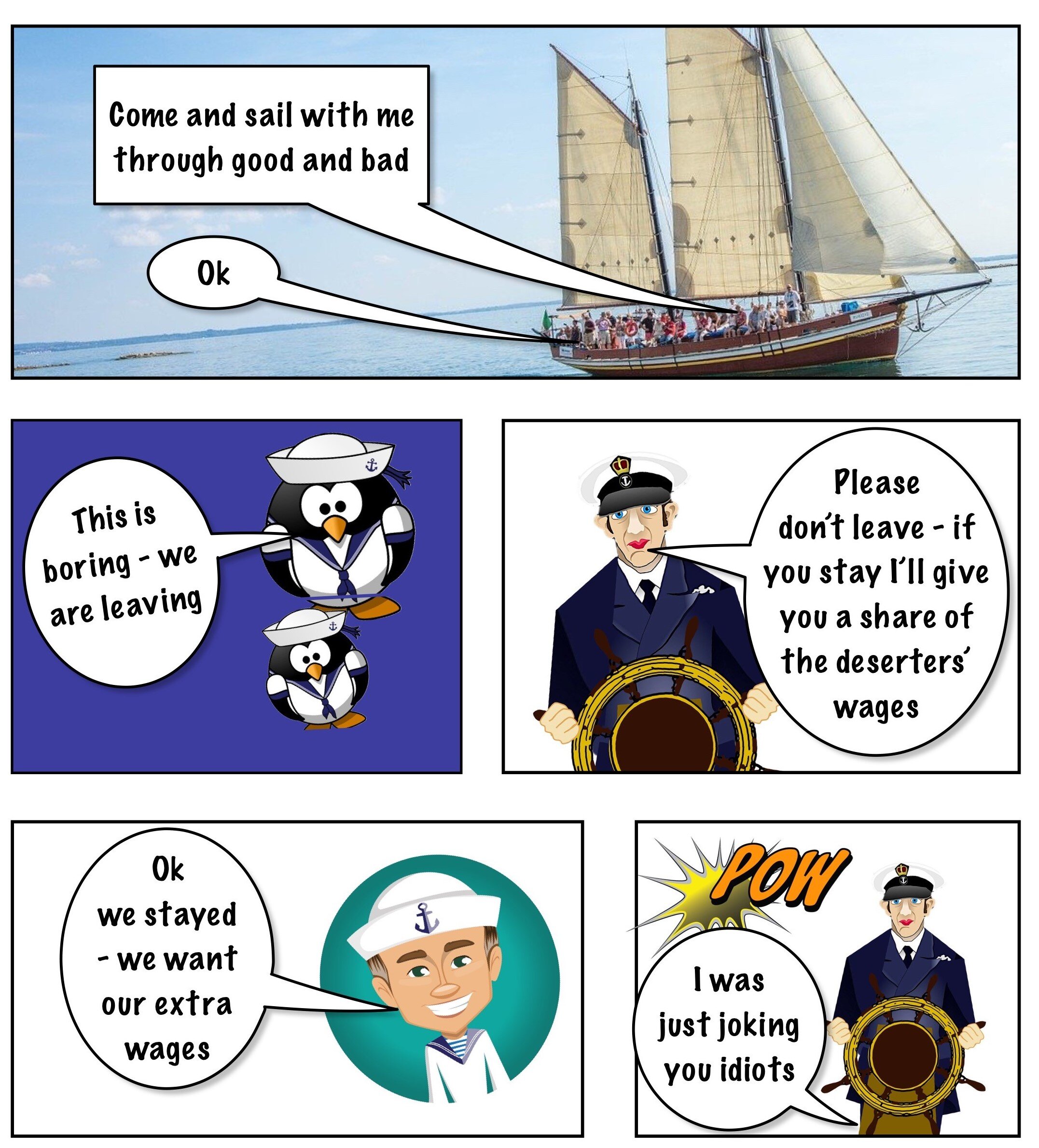Stilk v Myrick
(1809) 2 Camp 317
Case details
Court
King's Bench Division
(England)
Citations
1809 2 Camp 317
[1809] EWHC KB J58
170 ER 1168
Judge
Lord Ellenborough
Issues
Consideration
Past consideration: Performance of existing duties
Full text
BAILII
Copyright
Text of case understood to be Crown copyright protected material and extracts are reproduced from BAILII on that basis: BAILLI copyright page and 'Open Government Licence v 3.0'
Overview
This case involved the issue of consideration - could performance of an existing duty constitute good consideration?
This case determined that promising or performing a duty you are already bound to the other party to perform is not good consideration for any promise he makes you.
However, for the current position in Australia see also Williams v Roffey Brothers (distinguishing this case) and Musumeci.
Facts
Before the start of a voyage, plaintiff contracted to work as one of 11 seaman for the voyage for $5 a month. During the voyage 2 seamen deserted; Captain then made an agreement with the rest of the crew that they should receive the wages of the deserters if they continued to work the ship back to London.
“By the ship's articles, executed before the commencement of the voyage, the plaintiff was to be paid at the rate of £5 a month; and the principal question in the cause was, whether he was entitled to a higher rate of wages? In the course of the voyage two of the men deserted and the captain having in vain attempted to supply their places at Cronstadt, there entered into an agreement with the rest of the crew, that they should have the wages of the two who had deserted equally divided among them, if he could not procure two other hands at Gottenburgh. This was found impossible; and the ship was worked back to London by the plaintiff and eight more of the original crew, with whom the agreement had been made at Cronstadt.”
Claims
Plaintiff (sailor) sued for his share of the wages of the two deserters.
Garrow for the defendant insisted, that this agreement was contrary to public policy, and utterly void. In West India voyages, crews are often thinned greatly by death and desertion; and if a promise of advanced wages were valid, exorbitant claims would be set up on all such occasions. This ground was strongly taken by Lord Kenyon in Harris v Watson, Peak Cas 72, where that learned Judge held, that no action would lie at the suit of a sailor on a promise of a captain to pay him extra wages, in consideration of his doing more than the ordinary share of duty in navigating the ship ... if such a promise could be enforced, sailors would in many cases suffer a ship to sink unless the captain would accede to any extravagant demand they might think proper to make.
The Attorney-General ... distinguished this case from Harris v Watson, as the agreement here was made on shore, when there was no danger or pressing emergency, and when the captain could not be supposed to be under any constraint or apprehension. ... why should they be deprived of the compensation he voluntarily offers them in perfect security for their extra labour during the remainder of the voyage?
Held (Lord Ellenborough)
(1) The agreement was not enforceable because there was no consideration given by the plaintiff for the promise to pay.
(2) The remaining crew were already bound to work the vessel back to London. The desertions were merely an emergency of the voyage and the rest of the crew remained bound by the terms of the original contract to bring the ship back to London.
I think Harris v Watson was rightly decided; but I doubt whether the ground of public policy, upon which Lord Kenyon is stated to have proceeded, be the true principle on which the decision is to be supported. Here, I say, the agreement is void for want of consideration. There was no consideration for the ulterior pay promised to the mariners who remained with the ship. Before they sailed from London they had undertaken to do all that they could under all the emergencies of the voyage. They had sold all their services till the voyage should be completed. If they had been at liberty to quit the vessel at Cronstadt, the case would have been quite different; or if the captain had capriciously discharged the two men who were wanting, the others might not have been compellable to take the whole duty upon themselves, and their agreeing to do so might have been a sufficient consideration for the promise of an advance of wages. But the desertion of a part of the crew is to be considered an emergency of the voyage as much as their death; and those who remain are bound by the terms of their original contract to exert themselves to the utmost to bring the ship in safety to her destined port. Therefore, without looking to the policy of this agreement, I think it is void for want of consideration, and that the plaintiff can only recover at the rate of £5 a month. [emphasis added]

